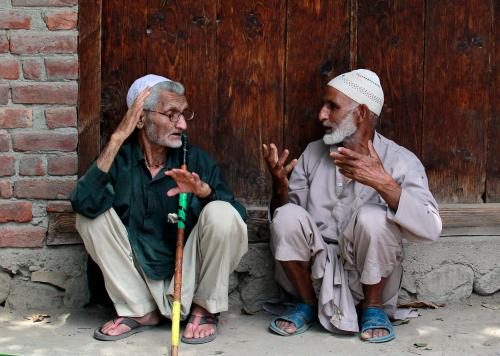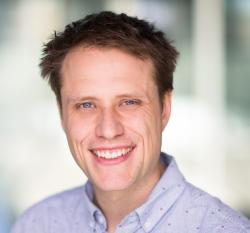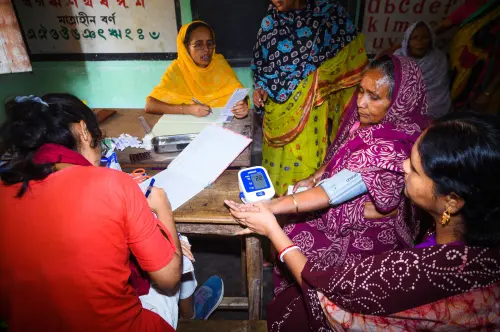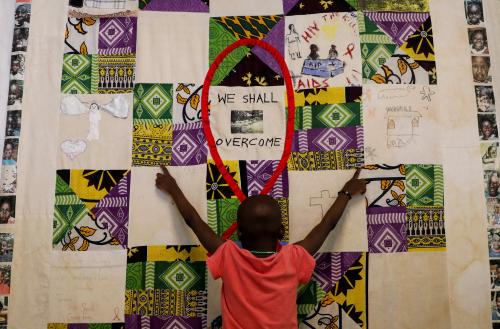What is the agency paradox?
Agency—our ability to choose goals and to act on them—is often understood through the lens of personal freedom. But here is the paradox: Agency does not thrive in isolation. It is shaped by the very social structures that constrain our actions. Although agency manifests in individual choices, agency is constituted by the connections and supports around us. This raises two questions: Can governments shape the psychological processes that build agency? And if so, are governments morally justified in doing so?
Can governments build agency?
To investigate the first question, in 2010 a team of researchers journeyed on camels and in four-wheel-drive vehicles to a remote part of Ethiopia facing chronic food insecurity. Expressions of fatalism were common—for instance, “We live only for today” and “We have neither a dream nor an imagination.” As our understanding of psychological and social determinants of well-being has evolved, this study continues to resonate as it offers valuable lessons on how agency and aspirations can be nurtured—especially in communities facing chronic constraints.
The team wanted to know whether a series of short documentaries about the lives of villagers who had escaped poverty through hard work and by setting and working toward goals could serve as role models. The research team invited randomly selected households to watch four 15-minute videos. In each video, a person from a community like that of the audience was shown taking actions that would be possible for the audience—for example, starting a small business or improving farming practices. In each video, the characters highlighted that progress takes time.
When the researchers returned to Ethiopia half a year later, they made a remarkable discovery. The villagers who had watched the hour-long videos had become more aspirational and had adopted behaviors to match their higher aspirations. Compared to households that had not been selected at random to watch the videos, the selected households had twice the amount of savings and 16% higher school enrollment among their children. By some measures, the household members were happier people. This inspired the researchers to return again five years later. They found that many of the impacts of watching the videos persisted.
Agency, as this example illustrates, entails imagining new futures, forming aspirations by observing others, and possibly acquiring the tools to act in ways not previously considered. The videos gave families a broader perspective on what was possible for people like them in communities like theirs. In this framing, agency is not about freedom in its traditional sense of overcoming constraints but about the capacity to act on the opportunities that a society and environment offer.
As it turns out, governments often implement programs with the intention to change beliefs and mindsets. “World Development Report 2015: Mind, Society, and Behavior” examined how targeted experiences and exposure can help mitigate psychological and social obstacles to human flourishing. This report highlighted the importance of addressing not just economic but also psychological barriers to growth. Here are four more examples of programs that changed mindsets and thereby changed behavior:
- When role models and community discussions were combined with cash transfers in Niger and Nicaragua, female participants formed higher aspirations. In Niger, women’s income increased, and their mental health and self-efficacy improved. In Nicaragua, two years after the conditional cash transfers had ended, female participants with good role models were purchasing healthier food and were more likely to read to their children each week. The children’s school attendance was greater, and each child was more likely to own a toy.
- When the top 4% of participants in a national math competition in Brazil were nationally recognized, the math scores of their classmates who were in the top quartile of the test score distribution rose, and these peers were more likely to attend a selective college.
- When a program to restore the self-image of sex workers in Kolkata, India, was introduced, it led to durable improvements in their economic and health behaviors, including increased savings and more frequent health clinic visits.
These interventions were cost-effective. Those that were done on a small scale are likely to be scalable at low cost.
Are these interventions moral?
The philosopher Jeremy Waldron asks: “What becomes of the self-respect we invest in our own willed actions … when so many of our choices are manipulated to promote what someone else sees … as our best interest?” This is a first-order policy concern. As Nobel laureate Amartya Sen persuasively argues, development is about expanding individuals’ capacity to pursue their life goals. It’s not about promoting any specific life goal.
This brings us back to the agency paradox—fostering agency may require interventions that are both paternalistic and freedom-enhancing. What matters, it seems to us, is the motivation of the program designer and the substance of the intervention. Agency is enhanced by helping people consider and navigate their opportunity sets. This entails creating the conditions for individuals to imagine new possibilities and take action to achieve a new life. These are capacities that individuals do not develop alone.
This paradox isn’t always apparent to those who design interventions. People who are socially privileged may find it obvious that individuals can realize their potential. They take for granted the social and psychological support that individuals need to flourish. But such support is not available to everyone. A privileged status in society gives individuals experiences and access to potential role models that help them achieve a good life. The desire to be a doctor or a teacher, for example—and the self-confidence required to achieve the goal—depend on one’s social networks and exposure. Poor people may not have these resources. Many individuals lack the role models and support systems they need to imagine or pursue upward mobility. Individuals who are members of a stigmatized group may encounter violence if they try to improve their lot. Supporting disadvantaged people often requires more than material resources and economic opportunities. It involves helping them imagine and actualize alternative ways to live.
Much evidence shows large social influences on the choices we make. “World Development Report 2015” identifies three types of thinking that influence our behavior:
First, much of our thinking is automatic. When making decisions, we draw heavily on what comes to mind effortlessly, which may include irrelevant features of the context (even the outcome of a roll of dice!). What comes to mind effortlessly may also include associations baked into the disadvantaged environment in which an individual lives—for example, roles that people like him play.
Second, we think socially. Social norms guide much of our behavior. There can be social punishments to behaving in ways different from one’s peer group. Upward mobility can come at the cost of social integration. The group you grew up with may think you are no longer one of them, and the new group—some of whose achievements you match or exceed—may not completely accept you.
Third, we think using cultural mental models. What we perceive and how we interpret it may depend on the concepts, categories, identities, and narratives that our communities have constructed. These cognitive structures mediate our experience of the world: We use them to process and organize information and construct our representation of the world. We use them when we plan a course of action.
The role of policymakers in shaping agency
Understanding how the mind works exposes the paradox at the heart of agency. As Paromita Sanyal has argued (see p. 38), our agency—our capacity to desire, to form intentions, and to act creatively—is necessarily shaped by our experiences, the social patterns to which we’ve been exposed, and the role models that we have adopted. Our own willed actions depend on the cognitive resources we have built up from all these social interactions. In light of this, it is impossible to think of a mindset that is not, in some way, shaped by governments—the experiences they influence and the services they provide.
Policymakers thus have good moral reasons to intervene when individuals have limited access to good role models or lack the self-confidence to form intentions and act on them persistently. Just as financial resources are unequally distributed, so too are social supports. If we have never seen anybody who looks like us practice medicine or teach a class or— as in the very remote villages in Ethiopia where the videos were shown—move beyond subsistence farming, it takes a leap of imagination to believe that we could do it ourselves. Government policies that increase our access to potential role models or improve our self-image can make such leaps easier.
All humans have the capacity to make plans and pursue them to build new and better lives. But developing the capacity requires supportive experiences. As Michael Tomasello argues in “Becoming human”—it is only with appropriate experiences that humans develop many of their uniquely human capacities.
The Brookings Institution is committed to quality, independence, and impact.
We are supported by a diverse array of funders. In line with our values and policies, each Brookings publication represents the sole views of its author(s).









Commentary
The agency paradox: How social support enables the freedom to act
November 5, 2024